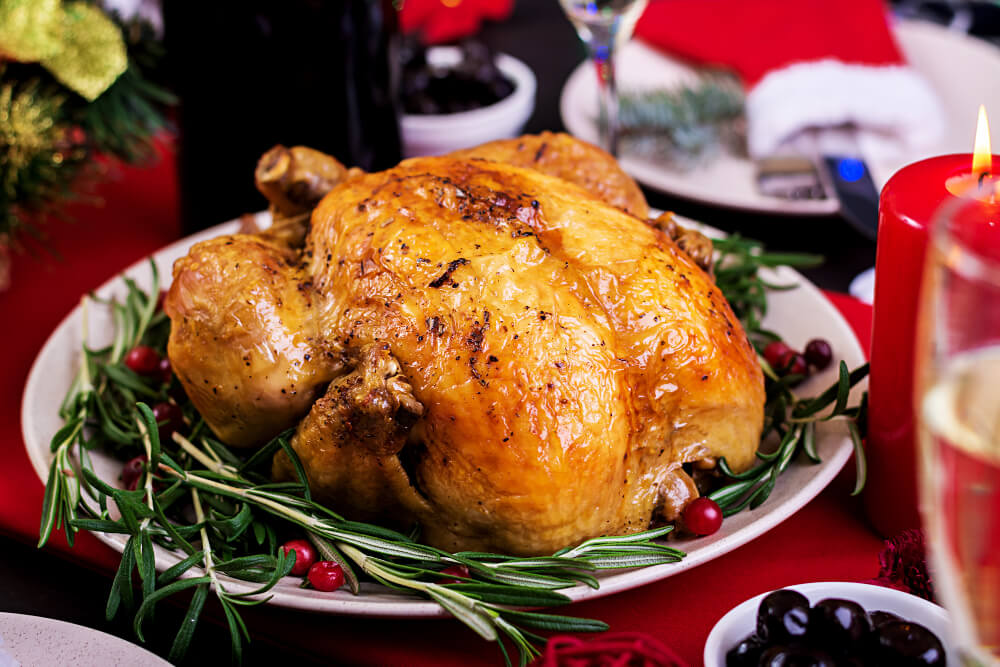
Welcome to our guide on how long smoked pork is good for! If you're wondering how long does smoked meat last, especially pork, last, you've come to the right place. Smoked meat can last for quite some time, depending on how it's stored and the quality of the meat. When refrigerated, smoked pork can last anywhere from four days to tend days in the fridge. As a versatile and delicious cooked meat option, it's essential to know how to properly store it and when to consume it.
In this guide, we'll explore the factors that affect the shelf life of smoked pork, how long smoked meat can last, and even how you can store it for months in the freezer. We'll also discuss the importance of maintaining the right internal temperature while storing and reheating your smoked pork and tips to consume it within four days or within two hours of cooking, depending on how it's stored.
So, whether you're a seasoned smoker or a newbie who just discovered the fantastic world of smoked meat, stick around as we dive into this mouthwatering topic!
Smoked Pork Basics
Smoking is an ancient and time-tested method of preserving meat, including pork. The process involves exposing meat to smoke, typically from wood, which adds a rich, smoky flavor and helps to extend its shelf life. There are two primary methods of smoking meat: hot smoking and cold smoking. Hot smoking cooks the meat at higher temperatures, while cold smoking preserves the meat at lower temperatures without actually cooking it.
The smoking process works its magic by drying out the meat, reducing the moisture content, which in turn slows down the growth of spoilage-causing bacteria. Additionally, the smoke itself contains antimicrobial compounds that further protect the meat from bacterial growth. This means that smoked pork and beef can last longer than their fresh counterparts when stored properly.
Different types of smoked meat - Pork
-
Smoked ham
Smoked ham is a popular choice for holiday meals and family gatherings. Made from the hind leg of a pig, it is cured and then smoked to create a delicious, tender, and flavorful meat. The smoking process not only adds a unique taste to the ham but also helps to preserve it, making it last longer in the fridge than fresh ham. Properly stored, smoked ham can be enjoyed for an extended period without compromising food safety.
-
Smoked bacon
Bacon is a breakfast favorite and a versatile ingredient in various dishes. Made from pork belly, it is first cured and then cold smoked to imbue it with that characteristic smoky flavor. The curing and smoking processes work together to make bacon last longer in the fridge, giving you more time to enjoy this beloved treat.
-
Smoked pork loin
Smoked pork loin is a lean and tender cut that comes from the back of a pig. It is often brined or marinated before being smoked, resulting in a succulent and flavorful dish. Smoking is a great way to preserve pork loin, as it dries out the surface of the meat and imparts a smoky flavor that can help mask any signs of spoilage. When properly stored, smoked pork loin can last for a significant amount of time in the fridge without sacrificing food safety or taste.
-
Smoked ribs
Smoked ribs, whether pork or smoked beef, are a barbecue staple that is loved for its tender, fall-off-the-bone texture and mouthwatering taste. Pork ribs, like brisket, benefit from the low-and-slow cooking method that smoking provides. The smoking process not only enhances the flavor of the ribs but also serves as a way to preserve the meat. This allows smoked ribs to last longer in the fridge than their unsmoked counterparts. By adhering to proper storage techniques and food safety guidelines, you can ensure that your smoked ribs remain safe and full of that rich, smoky flavor everyone craves.
Factors Affecting Shelf Life

Quality of the meat before smoking
The shelf life of smoked pork, or any smoked meat, is significantly affected by the quality of the meat before it is smoked. The freshness and overall condition of the cut of meat will determine how long the meat in the fridge or in the freezer will last. Fresh, high-quality meat will naturally last longer and maintain its flavor, while older or lesser-quality meat may spoil more quickly or go bad sooner. It's crucial to select fresh, good-quality cuts of meat for smoking to ensure the longest possible shelf life and the best taste.
Smoking method and duration
The method and duration of smoking can also impact the smoked meat shelf life. Generally, hot smoked meats, like smoked turkey and other poultry, have a shorter shelf life than cold smoked meats, such as smoked fish or cold-smoked bacon. This is because cold-smoked meat is preserved at lower temperatures, which helps to inhibit the growth of spoilage-causing bacteria, allowing the meat to last for a long time.
The duration of the smoking process is equally important, as it affects the moisture content and overall preservation of the meat. A longer smoking time will result in a drier, more preserved product, which can extend the shelf life. However, it's essential to strike a balance between smoking duration and the desired taste and texture of the meat. Over-smoking can result in a too-dry or overly smoky product that may not be as enjoyable to eat.
Proper storage conditions
Another factor that plays a critical role in determining the shelf life of smoked meat is proper storage conditions. Ensuring the right temperature, humidity, and sealing or packaging methods can significantly extend the shelf life of your smoked pork or other smoked meats.
Here's a closer look at these three essential aspects of storage:
-
Temperature: Maintaining the correct temperature is crucial for preventing the growth of bacteria that can cause spoilage. For short-term storage, refrigeration at a temperature between 34°F and 40°F (1°C and 4°C) is ideal. For long-term storage, freezing the smoked meat at 0°F (-18°C) or lower will help to preserve its quality and safety for an extended period.
-
Humidity: Controlling the humidity levels in your storage area is also important for preserving the quality of your smoked meat. High humidity can encourage the growth of mold and bacteria, leading to spoilage. To store smoked meat safely, maintain a low-humidity environment, particularly when storing cold-smoked products.
-
Sealing and packaging: Properly sealing and packaging your smoked meat is essential for prolonging its shelf life. To keep smoked meat fresh, wrap it tightly in aluminum foil, plastic wrap, or butcher paper before placing it in an airtight container or resealable plastic bag. This will help to prevent air from entering and drying out the meat, as well as protect it from absorbing any odors from your fridge or freezer. Vacuum sealing is another excellent option for extending the shelf life of smoked meat, as it removes air from the packaging and creates a tight seal, further reducing the risk of spoilage.
Cross-contamination risks
Lastly, cross-contamination risks can have a significant impact on the shelf life and safety of smoked meat. When bacteria or other contaminants are transferred from one food item or surface to another, it can result in spoilage and even foodborne illnesses. To avoid cross-contamination and ensure that your smoked meat remains safe to eat, follow these guidelines:
-
Separate raw and cooked foods: Always store raw and cooked meats separately in your fridge or freezer to prevent the spread of bacteria. Additionally, use separate cutting boards and utensils for raw and cooked meats during preparation.
-
Clean and sanitize surfaces and utensils: Regularly clean and sanitize countertops, cutting boards, and utensils to minimize the risk of cross-contamination. Wash your hands thoroughly with soap and water before and after handling raw or smoked meat.
-
Proper food storage: Store meat, including smoked meat, on the lowest shelf of your fridge to prevent any juices from dripping onto other food items. Use containers or plastic bags designed for food storage to keep smoked meat separated from other items in your fridge or freezer.
-
Avoid reusing marinades or sauces: If you've used a marinade or sauce on raw meat, don't reuse it on cooked or smoked meat without first boiling it to kill any bacteria that may be present.
-
Monitor expiration dates: Keep track of the expiration dates on your smoked meat and other food items to avoid consuming spoiled or contaminated products.
By taking steps to minimize cross-contamination risks, you can prolong your smoked meat's shelf life and ensure that it remains safe to eat. Proper food handling and storage practices are crucial for maintaining the quality and safety of all your food items, including smoked meat.
Determining the Freshness of Smoked Pork

Moving forward, let's now talk about how to determine the freshness of smoked pork by observing visual cues such as color and texture. Paying attention to these aspects can help you identify whether the smoked meat is still good to eat or if it has gone bad, reducing the risk of food poisoning.
-
Color: One of the best way to tell if smoked meat is bad is by its color. Smoked cured meat, including smoked pork, usually has a distinct color that is different from raw or cooked meat. Smoked meat can also range range from pink to dark brown, depending on the type of wood pellets used and the smoking process. If you notice any unusual color changes, such as the meat turning green or gray, it could be a sign that the smoked meat has gone bad. In such cases, it's best to discard the meat to avoid potential health risks.
-
Texture: Examining the texture of the smoked meat is a great way to determine its freshness. Fresh smoked meat should have a relatively firm texture and should not be slimy or sticky to touch. If the surface of the smoked meat becomes slimy or develops a film, it may be an indication that the meat has started to spoil. Keep in mind that some changes in texture can also occur due to the smoking process or storage conditions, so it's essential to consider other factors such as smell and taste before deciding whether to discard the meat.
Other Factors
Continuing our discussion on determining the freshness of smoked pork, let's explore two other essential factors: olfactory cues (smell) and taste tests (if unsure).
-
Olfactory cues (smell): The smell of smoked meat can provide valuable information about its freshness. Meat that has been cured and smoked, such as smoked brisket or smoked BBQ, should have a pleasant, smoky aroma. If you detect an off or sour smell, it could be an indication that the meat has spoiled. Keep in mind that refrigerated smoked meat may have a slightly different odor compared to when it's at room temperature. Allow the meat to sit at room temperature for a few minutes before evaluating its smell, as this can help you get a more accurate assessment of its freshness.
-
Taste test (if unsure): If you're still uncertain about the freshness of the smoked pork after checking its visual and olfactory cues, you can conduct a small taste test. Keep in mind that this should only be done if you have no strong reasons to believe that the meat is spoiled, as tasting spoiled meat can pose health risks. Before conducting a taste test, ensure that the temperature of the meat is safe for consumption. Reheat the smoked meat to a safe temperature (165°F or 74°C) to eliminate any potential bacteria that may be present on the outside of the meat. Afterward, take a small bite and evaluate the flavor. If the taste is off or rancid, discard the meat immediately.
Storage Guidelines for Smoked Pork

Now that we're through discussing how to determine the freshness of smoked pork, let's dive into the storage guidelines that will help you prolong your smoked meat's shelf life while maintaining its quality and safety.
In this section, we will cover refrigeration, freezing, and vacuum sealing techniques for storing smoked pork.
Refrigeration
-
Shelf life in the refrigerator
When properly stored in the refrigerator, smoked pork can last anywhere from four days to a week. The exact shelf life depends on factors such as the initial freshness of the meat, the smoking process, and the storage conditions. It's crucial to monitor the freshness of your smoked meat and consume it within this time frame to ensure that you enjoy a safe and delicious meal.
-
Proper storage techniques
To store smoked pork in the refrigerator, follow these guidelines:
-
wrap the meat in aluminum foil, plastic wrap, or butcher paper to protect it from exposure to air and to prevent it from drying out.
-
Place the wrapped meat in an airtight container or a resealable plastic bag to keep it separated from other food items and to prevent any odors from contaminating the meat.
-
Store the meat on the lowest shelf of your refrigerator to avoid any juices from dripping onto other food items.
-
Keep the refrigerator temperature between 34°F and 40°F (1°C and 4°C) to inhibit the growth of bacteria that can cause spoilage.
Freezing
-
Shelf life in the freezer
If you need to store smoked pork for a longer period, freezing is an excellent option. When properly frozen, smoked pork can last for up to three months without significant loss of quality. However, it's important to note that the texture and flavor of the meat may change slightly over time, even when frozen.
-
Proper freezing and thawing techniques
To freeze and thaw smoked pork safely, follow these guidelines:
-
Wrap the meat in aluminum foil, plastic wrap, or freezer paper before placing it in a freezer-safe container or resealable plastic bag. This will protect the meat from freezer burn and prevent any odors from contaminating the meat.
-
Label the container or bag with the date and contents to help you keep track of how long the meat has been in the freezer.
-
Freeze the meat at 0°F (-18°C) or below to ensure that it stays frozen and safe for consumption.
-
When thawing the meat, do so in the refrigerator, not at room temperature. This will prevent the growth of bacteria that can cause spoilage.
-
Once the meat is thawed, consume it within three days to maintain its quality and safety.
Vacuum sealing and its benefits
Vacuum sealing is another effective method for preserving smoked pork and can offer several benefits:
-
Vacuum sealing removes air from the packaging, which helps to slow down the growth of bacteria and other microorganisms that can cause spoilage.
-
The tight seal created by vacuum sealing helps to lock in the flavors and moisture of the smoked meat, ensuring that it stays fresh and delicious for longer.
-
Vacuum-sealed smoked pork can be stored in the refrigerator or freezer, depending on your storage needs. In the refrigerator, vacuum-sealed meat can last up to two weeks, while in the freezer, it can last for six months or more without significant loss of quality.
-
Vacuum sealing can also help to save space in your refrigerator or freezer, as the bags can be stacked or arranged more efficiently than bulkier containers.
Conclusion
In conclusion, understanding the shelf life of smoked pork and following proper storage guidelines are crucial for enjoying delicious and safe meals. By paying attention to visual, olfactory, and taste cues, you can determine the freshness of your smoked pork and ensure that it's stored correctly using refrigeration, freezing, or vacuum sealing methods. Prioritizing food safety and maintaining proper storage conditions will help you make the most of your smoked pork dishes.
Related Articles
- Smoked Pork Butt Fat Side up or Down? The Great Pork Butt Smoking Debate
- How Long Does Smoked Pork Last in the Fridge?
- Smoked Pork Tenderloin - Everything You Need to Know
- Top 5 Smoked Pork Tenderloin Recipes You Must Try
- Smoked Pork Chops - Everything You Need to Know
Related Products You Might Like
A high-quality wooden cutting board is an essential tool for handling smoked pork and other meats in your kitchen. Not only does it provide a stable surface for cutting and slicing, but it also helps to prevent cross-contamination and protect your countertops.
We at Mevell offer some of the best wooden cutting boards on the market, proudly crafted in Canada from 100% US materials. Our cutting boards are designed to be both functional and stylish, ensuring that you can prepare your smoked pork dishes with confidence and ease. Don't miss out on these must-have kitchen essentials from Mevell.



